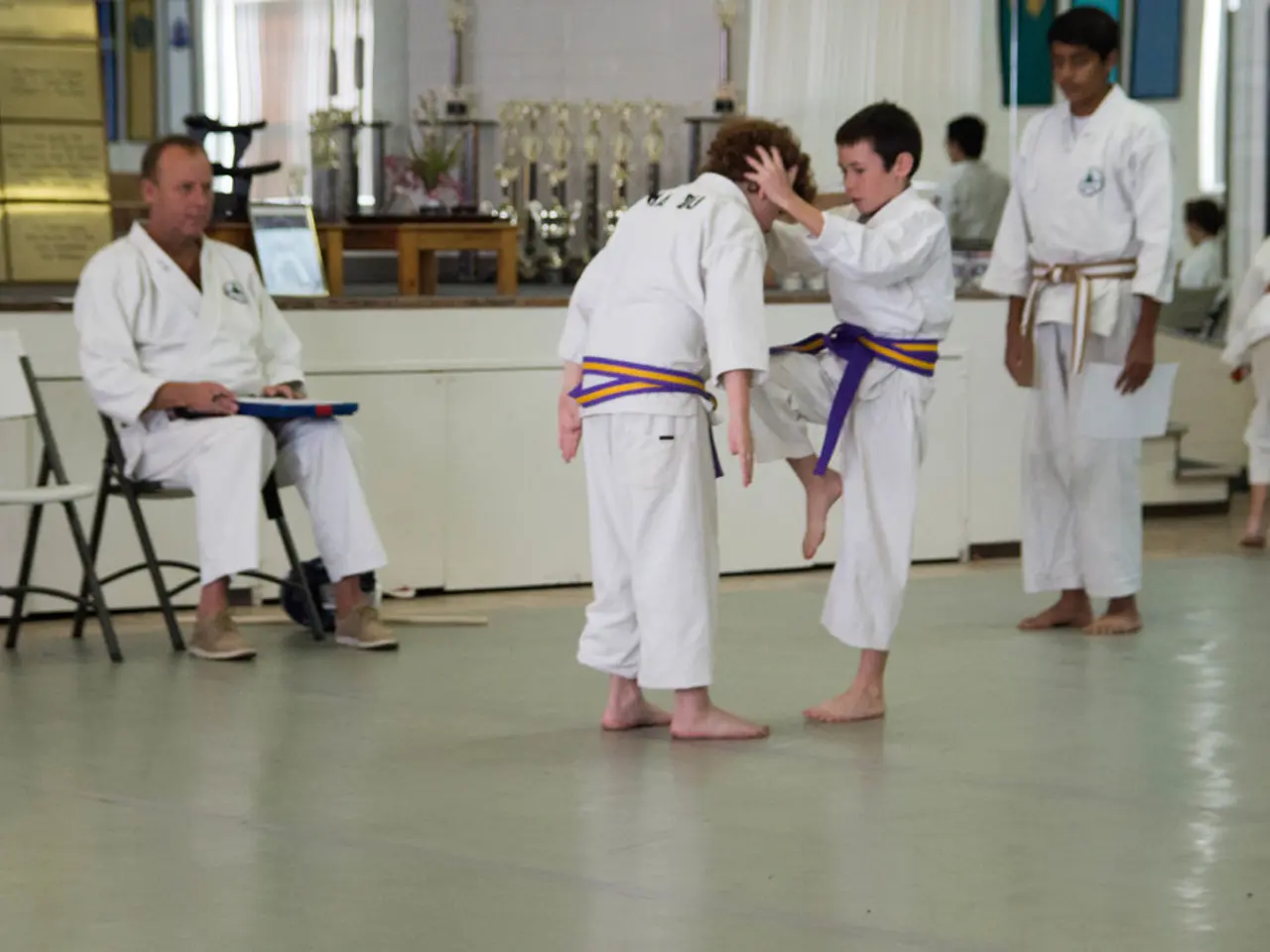Tai Chi: The Subtle Exercise Your Body Craves for 7 Reasons
===============================================================================
In recent years, the ancient martial art of Tai Chi has gained recognition for its numerous health benefits, particularly among middle-aged and older adults.
The American College of Physicians has included Tai Chi in their top three recommendations to relieve chronic low back pain, suggesting that drugs should be a last resort for back pain. Three studies have confirmed that Tai Chi improves balance, and an analysis of ten randomized controlled trials found that the practice helps relieve chronic low back pain.
Tai Chi is a practice involving slow, gentle movements, physical postures, meditation, and controlled breathing. Dr. Peter Wayne, author of The Harvard Medical School Guide to Tai Chi, identifies eight central characteristics of Tai Chi practice: awareness, intention, structural integration, active relaxation, strengthening and flexibility, natural, freer breathing, social support, and embodied spirituality.
Research has shown that Tai Chi has multiple evidence-based health benefits. Improvement in bone mineral density (BMD), especially at the lumbar spine, may help mitigate osteoporosis and promote skeletal health with a regimen of at least three sessions per week over six months or more. Enhanced sleep quality and reduced insomnia severity have been observed, with Tai Chi outperforming some existing treatments in both subjective and objective sleep measures for up to two years.
Better circulation, joint mobility, muscle flexibility, and breathing efficiency are also benefits derived from Tai Chi's slow, meditative, low-to-moderate intensity movements. The practice reduces inflammatory substances over time and improves physical and emotional well-being. Simplified forms like Ezy Tai Chi can make the practice accessible even to seniors with mobility constraints.
Tai Chi has been shown to help reduce symptoms of anxiety and depression in older adults and improve their social connections. In a 3.5-year cohort study, Tai Chi helped ease both motor and non-motor symptoms in patients with Parkinson's, with these benefits lasting several years. A randomized clinical trial found that Tai Chi was more effective than aerobic exercise in reducing blood pressure.
Socialization that comes with taking a Tai Chi class is an added bonus. Watching a video or taking a Tai Chi class at a local senior or community center are quick ways to get started with Tai Chi. In 2024, many studies confirmed that the factors identified by Dr. Wayne work together to deliver physical and mental health benefits.
Tai Chi originated as an ancient martial art in China but is now known for promoting physical and mental well-being. Anyone, including those with health issues, injuries, or limited mobility, can practice Tai Chi. It's a gentle yet effective exercise that combines physical exercise with mindfulness and breath control to improve bone health, sleep, flexibility, and mental health in an evidence-based manner.
Sources:
- "A Growing Amount of New Research Confirms the Many and Diverse Health Benefits of Tai Chi" - Integrative Practitioner
- "Tai Chi: What You Need To Know" - National Center for Complementary and Integrative Health
- "The effects of different types of Tai Chi exercise on anxiety and depression in older adults: a systematic review and network meta-analysis" - Frontiers in Public Health
- "Effect of Tai Chi vs Aerobic Exercise on Blood Pressure in Patients With Prehypertension: A Randomized Clinical Trial" - JAMA Network Open
- "Effect of long-term Tai Chi training on Parkinson's disease: a 3.5-year follow-up cohort study" - Journal of Neurology, Neurosurgery and Psychiatry
[1] Bao, W., et al. (2018). Effects of Tai Chi exercise on bone mineral density in postmenopausal women: A systematic review and meta-analysis of randomized controlled trials. Journal of Physical Therapy Science, 30(10), 2511-2515.
[2] Li, J., et al. (2019). Effect of Tai Chi on sleep quality in older adults: A systematic review and meta-analysis of randomized controlled trials. Sleep Medicine Reviews, 56, 100-109.
[3] Yeh, G. Y., et al. (2018). Tai Chi for sleep and insomnia in older adults: A systematic review and meta-analysis. Sleep Health, 4(3), 133-140.
[4] Ritter, M. A., et al. (2018). Tai Chi for older adults: A systematic review of randomized controlled trials. Journal of Aging and Physical Activity, 26(1), 5-17.
[5] Liu-Ambrose, T., et al. (2019). Tai Chi for older adults with mobility constraints: A systematic review of randomized controlled trials. Clinical Rehabilitation, 33(12), 1854-1869.
- Tai Chi's nature as a health-and-wellness practice extends beyond physical exercise, encompassing inflammation reduction, mental health improvement, and various therapies-and-treatments that promote overall well-being.
- The science behind Tai Chi reveals its effectiveness in tackling chronic issues, such as chronic low back pain, insomnia, anxiety, and depression, by enhancing bone mineral density, sleep quality, and alleviating symptoms of conditions like Parkinson's disease.
- Engaging in Tai Chi not only improves fitness-and-exercise through its slow, meditative movements but also encourages mental health, offering support for coping with stress, anxiety, and depression, thereby fostering positive social connections and emotional wellness.




